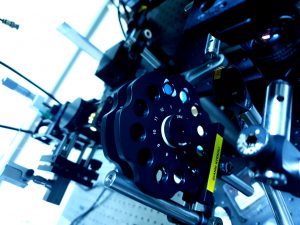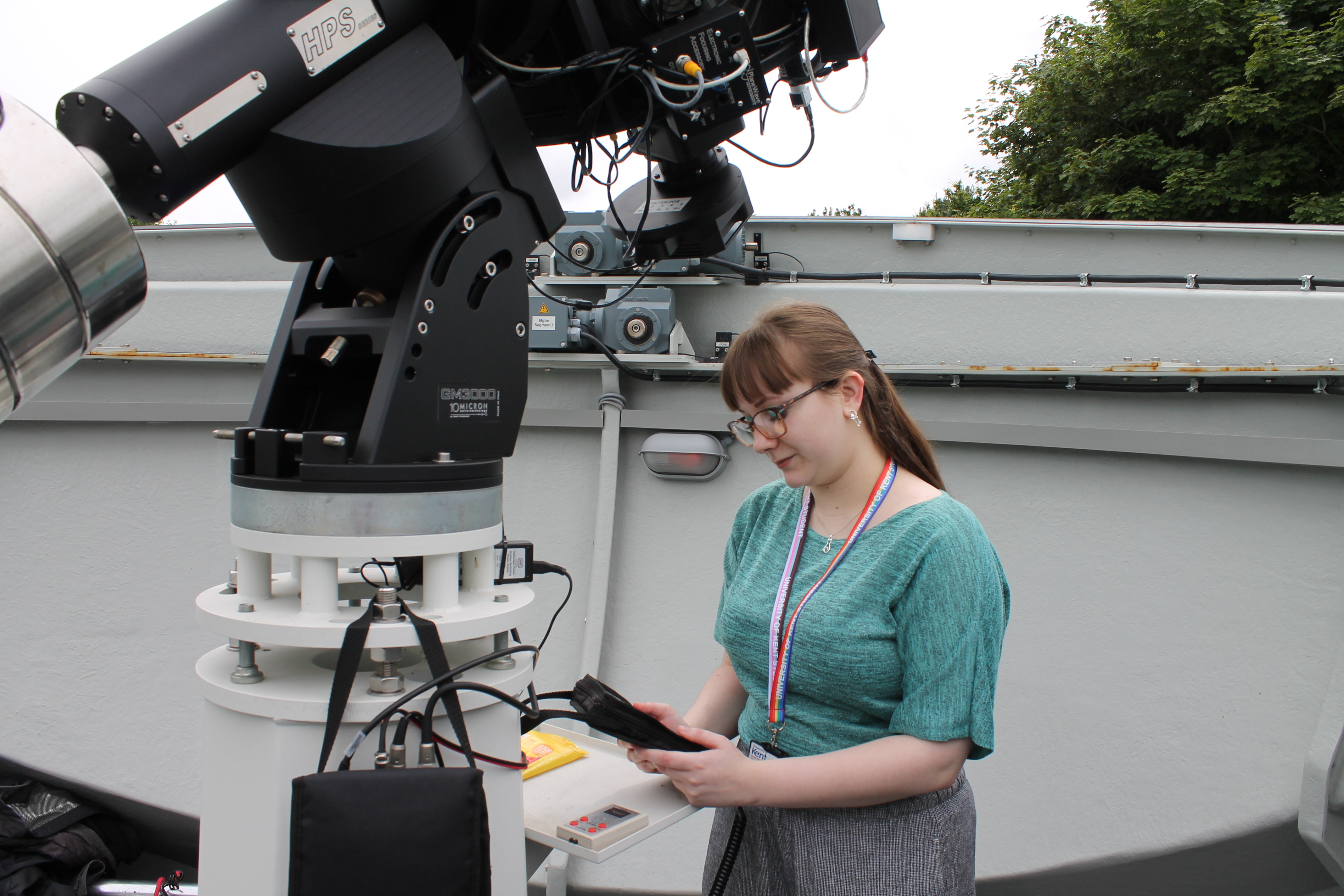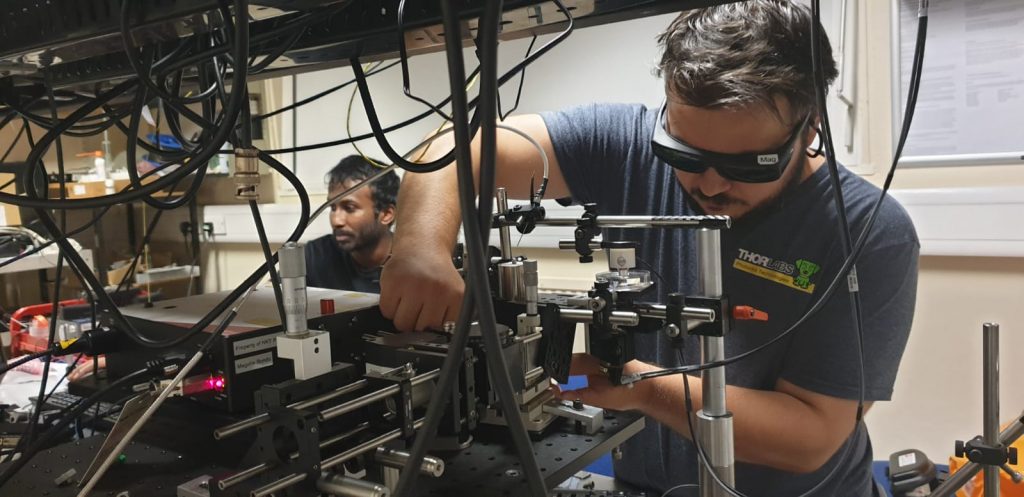1.What three words would you use to describe yourself?
Free thinker, resilient, resourceful.
2. What inspires you in your work?
My family, my friends, my own initiative.
3. When did you first realize your interest/passion for applied optics?
At first I only knew that I want to do research on biomedical physics/engineering, but as soon as I started working in my lab I had to force myself to leave the lab and get back home in a reasonable time. I would wake up almost every day before the alarm clock coz I had an idea and I would run to the lab.
4. What would you say was your greatest achievement?
I don’t think that I am the one to evaluate myself, but I think that attending three conferences on which I presented my research and a summer school, establishing four collaborations three of which abroad, and already working on two papers, within the first year of my PhD is quite good.
5. What areas would you like to see progress in research for the School of Physical Sciences?
I am very motivated to do cancer research using applied optics. I believe that the Applied Optics Group has the expertise and most of the equipment required. However, more and better collaborations with clinicians and oncologists is essential for a fruitful pathway towards tackling impactful problems in cancer research.
6. Why did you choose to study at the University of Kent?
I was offered two scholarships, a Marie Curie from Kings College and the VC from the University of Kent.
I choose Kent because I would be able to be more independent pursuing my research interests, I would be able to gain teaching expertise as a GTA and last but not least for me I love small cities and I don’t like to live in big cities.
7. What are your proudest achievements outside of your work?
When I was an undergrad, myself and other students voluntarily organised and run tutoring classes for high school students that couldn’t afford (economically) tutoring. Which is essential to participate in the national exams in Greece in order to be accepted by universities. We were about 100 students, from several universities of Athens, of which I was one of the first coordinators. This was acknowledged by the municipality of Athens. The Mayor of Athens provided the facilities and in the end of each academic year he would personally award to each volunteer a certificate.
8. What has been your greatest challenge?
The greatest challenge for has been missing my family and the amazing friends I have in Greece.
Everything else is flowing smoothly. My supervisor Dr. Adrian Bradu, the head of the group Prof. Adrian Podoleanu and the rest of the group are amazing people.
9. What do you like most about Canterbury?
I love that the city has character. Within these medieval walls and the rivers running through the city the beauty of which calms me and provides a warm feeling. I call the Westgate Towers Garden my happy place.
10. Why should people study a PhD at Kent?
I can’t really refer to the University of Kent in general except for the beauty of the city and the nice slightly remote but not too remote campus. But I would recommend to everyone interested in biomedical physics a PhD in the Applied Optics Group. A group maybe not well known to all disciplines but highly regarded worldwide in the field. Very warm atmosphere, fairly good equipment, well regarded in the field academics and indisputable expertise.


